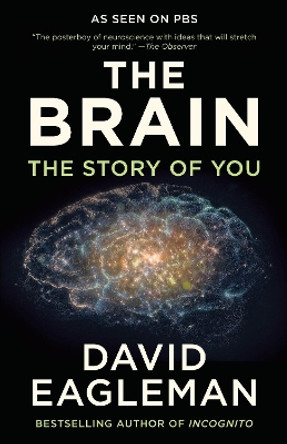Description
About the Author
David Hubel and Torsten Wiesel were both awarded the 1981 Nobel Prize in Physiology or Medicine. Torsten Wiesel is the Secretary General of the Human Frontier Science Program and President of the International Brain Research Organization.
Reviews
...charming and interesting autobiographical essays. * Alva Noe, TLS *
Extremely important * Alva Noe, TLS *
All in all this is an excellent book and helps to set the work of Hubel and Wiesel in the context of real people doing real science. It also helps to connect the papers together in an appropriate set of sequences for those starting in the area - how it would have helped to have it around when I first started trying to teach visual physiology to medical students * Physiology News, No 61 *
The entire book is an inspiration to read. The original papers and the additional chapters are beautifully written - which means that they are stylistically elegant, free from jargon and cliche and, above all, devoid of the current, vulgar, craze for acronyms and abbreviations and of other devices that serve to make science even more inaccessible . . . Neuroscience should rejoice that, during a mere 25 years, its world was enriched not only by a wealth of knowledge but also by new standards of evidence and elegance of methodology which have left a permanent imprint. * Brain, 128 *
The book's glory is that the commentaries sandwiching each paper illuminate the workings of one of the most productive collaborations in the history of biology. Hubel and Wiesel describe the joy of mom-and-pop science where the collaborators do the work and weigh what to do next . . . the book brings their work all together - complete with the authors' retrospective evaluations of their work . . . a gem in the history of the field and a core resource. * Robert Wurtz in Science *
. . . The entire book is an inspiration to read. The original papers and the additional chapters are beautifully written . . . Read today, some 50 years after the initial work was published, the papers still retain their freshness and their capacity to arouse wonder, not only at the way in which nature has elaborated such an impressive organ, but also at the tenacity and the powerful conceptual thinking that was behind their collected work . . . Neuroscience should rejoice that, during a mere 25 years, its world was enriched not only by a wealth of knowledge but also by new standards of evidence and elegance of methodology which have left a permanent imprint. * Semir Zeki in Brain *
Advance praise for Brain and Visual Perception:
For those who came of age admiring the scientific adventures of Hubel and Wiesel, this book is an opportunity to look back in wonder. For those who came after, it will be an inspiration. This is a marvel of a book, written in David Hubel's disarmingly engaging voice, a must have, a must read. * Antonio Damasio, Neuroscientist and author of Descartes' Error and Looking for Spinoza *
David Hubel and Torsten Wiesel's book describes the wonderful period in neurophysiology when they worked on the early mammalian visual system. I found it fascinating reading. * Francis Crick, Nobel Laureate and author of The Astonishing Hypothesis and What Mad Pursuit *
A rare opportunity to peek into the minds of two giants of twentieth century science. Each of their classic papers reads like a Sherlock Holmes novel, but the accompanying commentaries and autobiographies, packed with witty, whimsical asides and Hubelisms, bring out the human side of science - reminding us that great science is a judicious blend of intuition, imagination and sheer tenacity rather than a cold rational process of the kind one usually associates with Holmes. It's especially refreshing to see their low-tech approach in an era of high-tech 'big science' dominated by brain imaging and gee whiz neophrenology. * V S Ramachandran, BBC Reith Lecturer for 2003 and author of A Brief Tour of Human Consciousness *
Hubel and Wiesel, as much as any other scientists, are responsible for our current view of the brain, its function, and how it is moulded by the environment. This book will provide students and established scientists alike insight into the roots of modern neuroscience, a view into one of the most productive collaborations in the field, and some of the best examples of scientific writing in the literature. * David Ferster, Professor of Neurobiology and Physiology, Northwestern University, USA *
Beginning around 1960, David Hubel and Torsten Wiesel took the study of the brain and its development from the realm of philosophy to biology. These papers and the commentaries that accompany them put the reader inside the heads of the scientists who gave us our modern understanding of the cerebral cortex, often by asking the next logical question, but always with appreciation for the beauty of the system. * Michael P. Stryker, W.F. Ganong Professor of Physiology, University of California, San Francisco, USA *
Book Information
ISBN 9780195176186
Author David H. Hubel
Format Hardback
Page Count 744
Imprint Oxford University Press Inc
Publisher Oxford University Press Inc
Weight(grams) 1683g
Dimensions(mm) 262mm * 179mm * 42mm






